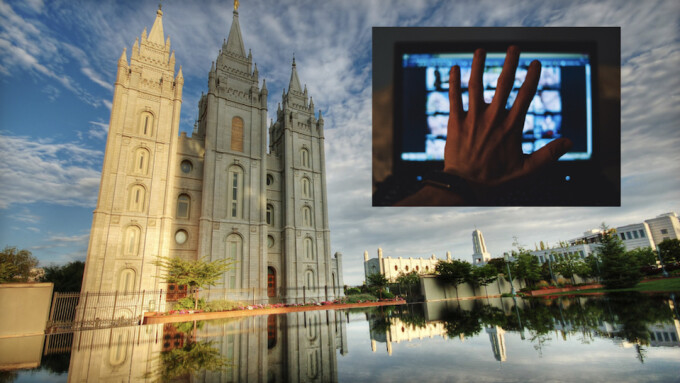SALT LAKE CITY — Utah’s leading anti-porn crusader, state Sen. Todd Weiler, has introduced a measure mandating prison time for any electronics manufacturer worldwide who fails to install and activate a default anti-porn filter on devices sold in the Mormon-majority state.
Weiler (R-Woods Cross) introduced SB 104, which would “accelerate part of a porn-blocking bill passed in 2021, which required all new cellphones and tablets sold in Utah, meant for both children and adults, to come with pornography filters activated as a default setting,” the Salt Lake City Tribune reported.
As XBIZ reported, Utah’s Republican governor, Spencer J. Cox, signed in 2021 the controversial Republican bill HB 72, mandating a default porn filter on electronic devices sold in the state.
Members of Utah trade associations, tech company lobbies and free speech groups all advocated against HB 72.
The bill, a version of which a religious conservative legislator had unsuccessfully proposed in 2020, only moved forward after it was amended to indicate that it “will not go into effect until five additional states have adopted similar language. It gives a 10-year period for that to occur,” the Salt Lake City Fox affiliate reported.
Weiler vociferously complained at the time about the additional requirements.
“In the years since then, we’ve kind of made ourselves an outlier when it comes to social media and porn websites,” he said. “So it kind of begs the question, why are we waiting for other states on this one?”
Mythical ‘Porn Addiction’ Again Cited as Justification
Weiler said his current proposal, SB 104, “is intended to protect children from developing an addiction to pornography,” though the pseudoscientific notion of porn addiction has been repeatedly debunked by public health scientists.
At a Utah Senate meeting, Elder Merv Arnold, a former General Authority for the Church of Jesus Christ of Latter-day Saints (LDS), stated, “The whole issue constitutionally has been that we can’t restrict the adults from receiving the material. This does not.”
Utah, Arnold continued, “has a fabulous record … for being out in front and protecting our children and grandchildren from these kinds of issues. And this is just one more step in that direction.”
Utah has often led other states in implementing anti-porn legislation. In practice, the state has little separation between church, state, press, education and business, and the Mormon church — with which a majority of Utahns claim affiliation — has resisted scientific, evidence-based and parent-focused approaches to protecting children online.
Despite the national GOP’s laissez-faire philosophy regarding most business and regulatory issues, Utah’s Republican officeholders have relentlessly championed blanket mandates when it comes to default manufacturer-enabled filters or age verification systems.
The LDS Church has also promoted “porn filters” in Utah and nationwide, based on church elders’ theological belief that all porn — a term that for them encompasses all depictions of sexuality outside of the Mormon marriage — is a ploy by Satan to destroy Mormon households.
Legislation mandating porn filters like Weiler’s proposals would also result in a financial boom for filter businesses, which would be able to bid for both public and private contracts.
Leading anti-porn organization NCOSE, formerly Morality in Media, is currently led by Mormon activist Dawn Hawkins, who has endorsed for-profit religious porn filters like Covenant Eyes, telling the Baptist Press that she has heard from hundreds of people who “have struggled with pornography addiction and dependencies” and who found help through “an accountability model, similar to AA (Alcoholics Anonymous) and many successful gambling recovery programs.”
Ron DeHaas, president and co-founder of Covenant Eyes, sits on NCOSE’s board of directors.








